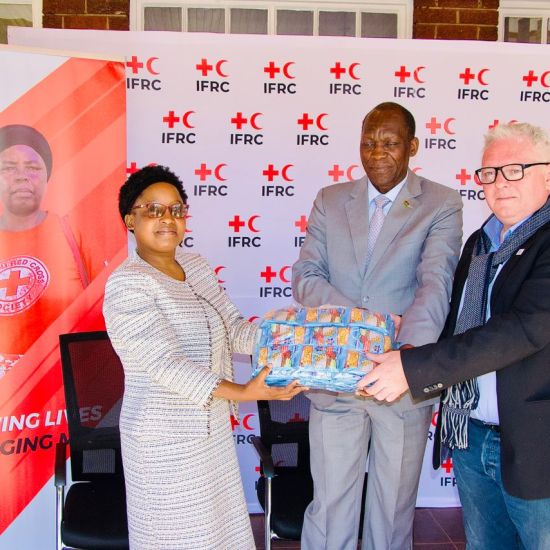
The International Red Cross and Red Crescent movement has raised concern over the levels of food insecurity in sub-Saharan Africa saying the continuation of the trends will leave more people at risk in the coming months.
In a statement, the humanitarian movement said there is need for scaling up response mechanisms in the face of the crisis.
“At a time of intense global humanitarian need and competing demands, Sub-Saharan Africa is experiencing one of the most alarming food crises in decades. 146 million people are suffering from acute food insecurity and require urgent humanitarian assistance.
“We, the International Red Cross and Red Crescent Movement, are extremely concerned by the devastating impact of this crisis on people’s lives and dignity. Since the start of the crisis, African National Societies and their Partners have reached almost 3.5 million people through life-saving interventions. However, food insecurity trends continue to deteriorate indicating that even more will be at risk during the coming months and years.

“Scaling-up our Collective Response In the face of this unfolding tragedy, a massive, coordinated scale-up of our action is urgent and critical. This recognizes that the Movement will not be in a position to address all needs and will complement efforts of Governments and other humanitarian actors. The Movement, which includes the ICRC as well as African National Societies and Partner National Societies who are members of the IFRC, is providing life-saving humanitarian assistance to those affected while contributing to building longer-term recovery and resilience,” said ICRC.
The movements added “Hunger is one of the most undignified sufferings of humanity and has severe repercussions on African communities who face multiple shocks, compromising their lives, livelihoods, and prospects. Driven by a complex interplay of insecurity and armed conflict, extreme weather events, climate variability, and negative macroeconomic conditions, this crisis is distinct in its magnitude and geographic scope.
“As such, it requires an exceptional mobilization but demands at the same time a massive effort by all concerned institutions and states to address the systemic failures that underpin food insecurity in Africa. In the past five years, those experiencing acute food insecurity have increased by 83 percent, an estimated 54 million people, with women and children being disproportionately affected. Their vulnerabilities are compounded by poverty, inequality, marginalization, and recurrent shocks, which have fundamentally altered lives.
“As priority, we are scaling up our response to address urgent humanitarian needs emphasizing integrated, cash-based assistance alongside health and nutrition, water and sanitation. At the core of our intervention lies the centrality of the National Societies and their 1.6 million volunteers, who provide unique access to vulnerable populations. Equally, the IFRC is scaling up its operations through a Regional Emergency Appeal to support most affected communities through 23 African National Societies.”








